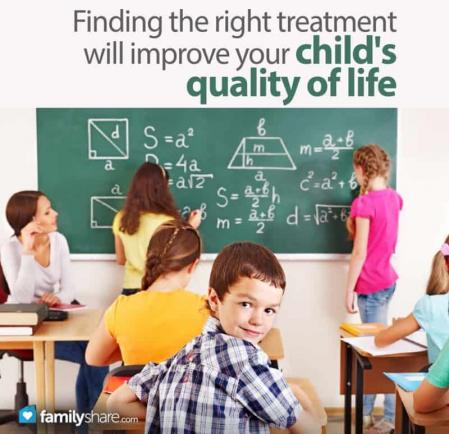
Children with Attention Deficit Hyperactivity Disorder have difficulty with what is known as executive functioning. They are impulsive, have difficulty following directions, and have trouble concentrating on tasks. It causes difficulties in home life, peer relationships, and school. If you find yourself wondering, "Is it really ADHD?" you might consider pursuing a diagnosis and treatment.
ADHD is a disability that affects 5 million children in the United States, but that doesn't make pursuing a diagnosis and treatment any less intimidating if you're the one faced with this challenge. If you find yourself on the verge of seriously pursuing a diagnosis and treatment for your child's ADHD, here are a few suggestions that might help.
Start early
ADHD can be diagnosed in children as early as 4 years old. Often, there is a waiting period of several months to have an appointment with a specialist so scheduling an appointment as soon as possible is important.
Advocate for your child
As a parent, you can initiate the discussion with health care providers and school professionals in best assisting your child.
Talk to your pediatrician
Your child's doctor will discuss behavior and symptoms, and will attempt to determine the cause for the difficulties your child is experiencing. Your doctor may also be able to provide referrals to other specialists.
Be open with the professionals
Provide as much information as possible
about the difficulties in your home, school, and social relationships. This helps in establishing the comprehensive diagnosis and in how best to treat your child's ADHD.
Provide a complete medical and developmental history
ADHD has a genetic component. Prenatal exposure to smoking and other substances can also affect executive functioning.
Talk with your child's teachers
Express your concern about the difficulty your child is experiencing. A team of professionals such as the teacher, special education teacher, principal, and school psychologist will assist you in pursuing a course of action. The Individuals with Disabilities Education Act ensures your child has access to education and school services free of charge.
seek services from a professional
If you're referred to a specialist, seek services from a professional with advanced training in psychology and brain functioning, preferably a pediatric neuropsychologist.
ADHD Diagnosis
The preferred method for diagnosis of ADHD is a comprehensive neuropsychological evaluation. The evaluation includes interviews with both parent(s) and child. Information is collected about development, family history, and school. In addition, parents and teachers complete standardized questionnaires to determine the impact of the child's condition in home and family life, school, and peer relationships. Finally, standardized tests for intelligence and cognitive functioningare administered to your child.
Upon completion of the evaluation, a psychoeducational report is provided. The report contains medical and developmental history, a summary of observations in home and school settings, the cognitive assessments conducted, and the results of the evaluation. Also included are recommendations for treatment and accommodations.
If the diagnosis confirms what you are likely expecting, you are then faced with the choice of proactively treating ADHD or facing yours and your child's challenges on your own. Before making that decision, get educated. Here are the treatments your doctor will probably recommend.
Treatment options
Behavioral interventions
- This may include cognitive behavior therapy and parent training for child behavior management skills.
Medication
- Stimulant and non-stimulant medications have been proven effective through research for several decades.
Combination of behavioral interventions and medication
- Many children require combined treatment of behavioral interventions and medication.
Nutrition
- Many parents have removed sugar, preservatives, and hormones from a child's diet in order to reduce the effects of an executive functioning deficit. Although some parents have reported a change in behavior, there is limited research to substantiate these claims.
Treating ADHD effectively will assist your child in developing a positive self-esteem and in obtaining appropriate accommodations. Treating ADHD properly also makes your child less likely to seek ineffective treatment for ADHD or abuse dangerous substances.
Don't give up. Determining the right treatment for your child is a process, but doing so can greatly improve the quality of life for you and your child.

